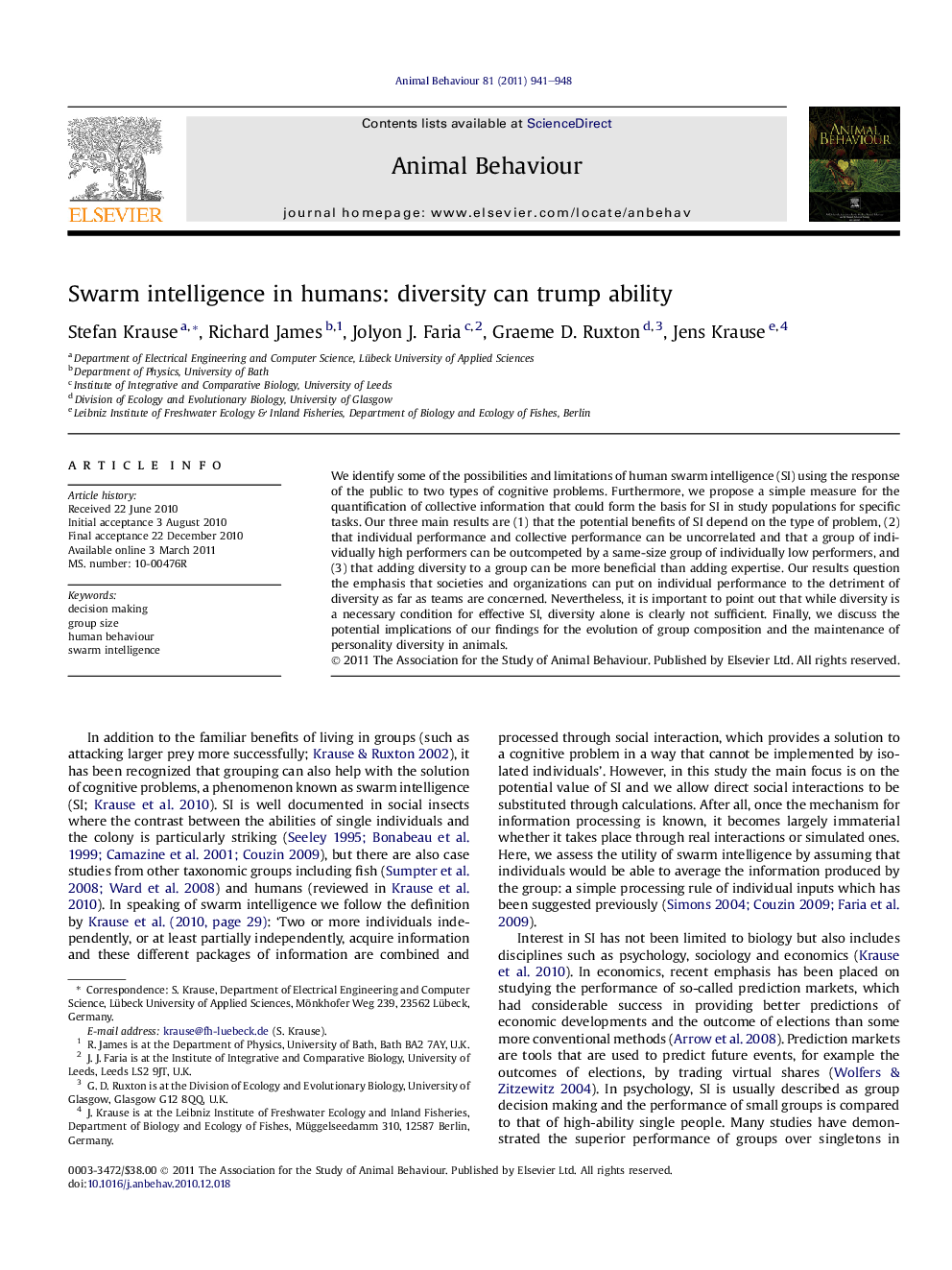| Article ID | Journal | Published Year | Pages | File Type |
|---|---|---|---|---|
| 2417050 | Animal Behaviour | 2011 | 8 Pages |
We identify some of the possibilities and limitations of human swarm intelligence (SI) using the response of the public to two types of cognitive problems. Furthermore, we propose a simple measure for the quantification of collective information that could form the basis for SI in study populations for specific tasks. Our three main results are (1) that the potential benefits of SI depend on the type of problem, (2) that individual performance and collective performance can be uncorrelated and that a group of individually high performers can be outcompeted by a same-size group of individually low performers, and (3) that adding diversity to a group can be more beneficial than adding expertise. Our results question the emphasis that societies and organizations can put on individual performance to the detriment of diversity as far as teams are concerned. Nevertheless, it is important to point out that while diversity is a necessary condition for effective SI, diversity alone is clearly not sufficient. Finally, we discuss the potential implications of our findings for the evolution of group composition and the maintenance of personality diversity in animals.
